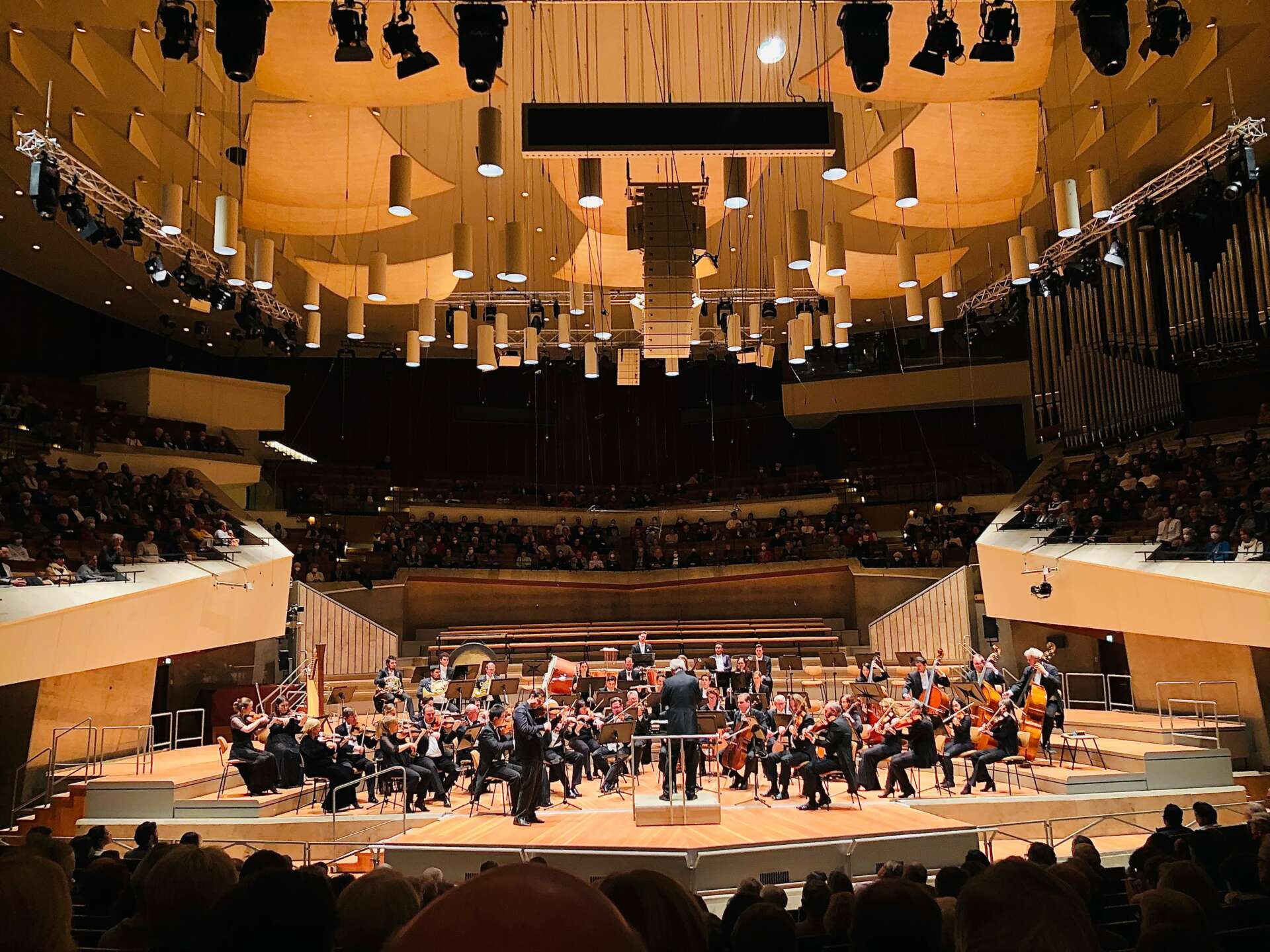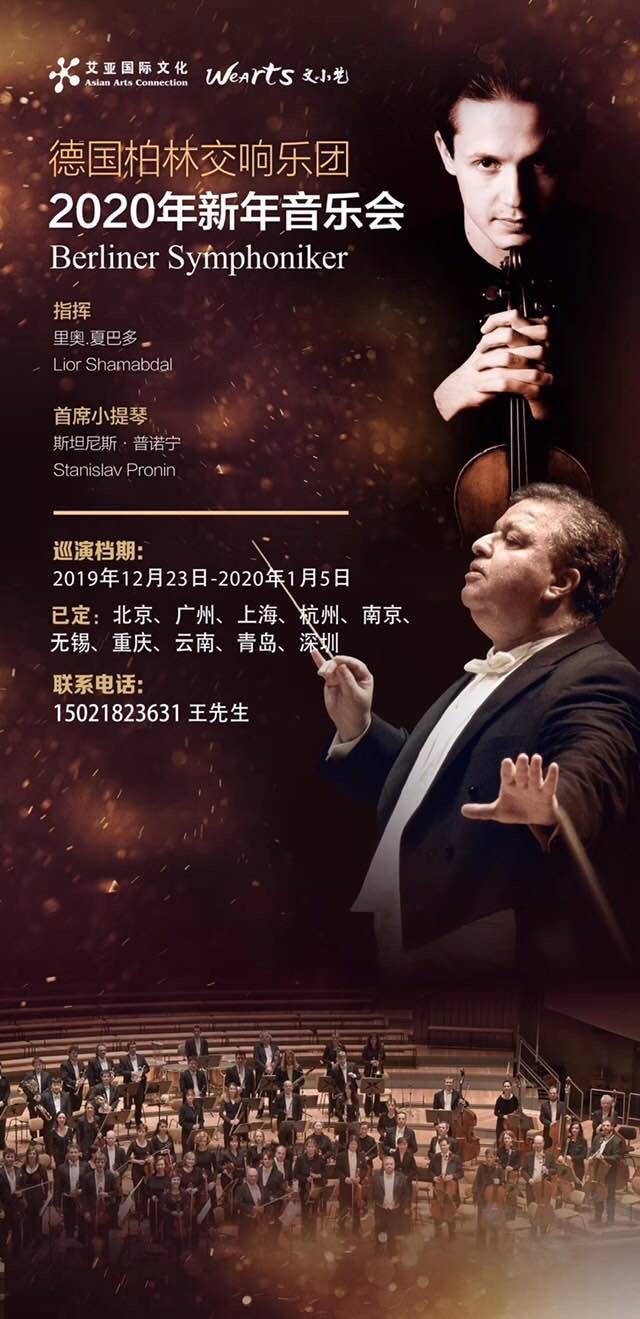We caught up with the brilliant and insightful Stanislav Pronin a few weeks ago and have shared our conversation below.
Stanislav, appreciate you joining us today. Have you been able to earn a full-time living from your creative work? If so, can you walk us through your journey and how you made it happen? Was it like that from day one? If not, what were some of the major steps and milestones and do you think you could have sped up the process somehow knowing what you know now?
“Is it really possible to make a full-time living as a professional classical musician?” This is the question I get asked most often, particularly by young musicians who are overwhelmed by the uncertainties of the future, and I certainly don’t blame them. There are simply too many active musicians and the level of competition is rather daunting for most individuals out there. Additionally, many of my musician friends (especially the so-called freelancers) had begun to question their career choices as a result of the devastation that came with Covid-19. Nevertheless, I do believe it is possible to be successful and financially secure as a professional musician, but there are several important factors one must consider. First of all, one must be naturally gifted to an extent, there’s really no way around it. While hard work and determination often prove to be some of the key elements in the career equation, talent is what essentially separates the top earners from the bottom feeders, as brutal as that may sound. Being good looking certainly doesn’t hurt either. As superficial as it may seem, sex sells out classical concerts and audience members tend to listen with their eyes. As an old fashioned musician, I do not condone such shallowness, but it is omnipresent nevertheless. Social media often gives people the idea that they can become successful overnight but, as Jascha Heifetz so eloquently put it: It’s not when you get to the top that’s important, but how long you can stay up there. In order to be a professional musician and continuously make a living doing it, one must constantly evolve and adapt. Unless you have incredible wealth and strong professional connections, and you have become successful very early in life, it’s simply not enough to only play solo repertoire well and hope for the best, even if you’re extremely talented. As a matter of fact, even the top soloists couldn’t perform during the pandemic, so dependence on solo gigs alone can become a rather risky enterprise. Today most musicians must be willing and able to do everything: perform as soloists, play in orchestras, teach, conduct, and to be successful entrepreneurs as well, all at the same time. Versatility is everything. For example, I could be playing Tchaikovsky concerto at the Berliner Philharmonie one night, then fly to London the next morning to teach at the Royal College of Music, then in a few days travel to Singapore to perform as guest Concertmaster with the Singapore Symphony Orchestra, and then to the USA to give recitals, before I have to return to Asia once again to teach and perform in China. As exhausting as it may sound, that is the pace I enjoy and that’s ultimately the key to being successful: love what you do. If you wake up in the morning and feel like you could live without music, then you should definitely not be a professional musician.



Great, appreciate you sharing that with us. Before we ask you to share more of your insights, can you take a moment to introduce yourself and how you got to where you are today to our readers.
I am a Canadian violinist and composer. My first teacher was my grandfather, Veniamin Pronin, a student of the great Pyotr Stoliarskiy and former Professor at the Odessa Conservatoire in the Ukraine. I made my solo debut in Israel at the age of 10. I began learning my instrument relatively late, around 8 years of age, but I suppose I was disciplined enough to make rapid progress. I continued my studies in the USA at Indiana University with Nelli Shkolnikova and Jaime Laredo, as well as composition lessons with Professor Sven-David Sandstrom, and later at the Hochschule für Musik und Tanz Köln, Germany, with Professor Zakhar Bron.
I perform regularly as soloist and chamber musician at major festivals and concert venues including Verbier Festival, Interlaken Classics, Banff Festival, Kronberg Festival, Berliner Philharmonie, Carnegie Hall, Perlman Theatre in Philadelphia, Palais des Beaux-Arts in Brussels, Guangzhou Grand Theater, Teatro Colon in Buenos Aires, Shanghai Oriental Arts Center, Semperoper in Dresden, and so on. I find time management to be extremely important – there can simply be no efficiency or success without it.
Just as my grandfather who, in his time, had worked closely with numerous composers, including Dmitry Shostakovich, I am an avid performer of new music. It’s generally quite exciting to have the creator of the composition present throughout the entire rehearsal and recording/performance process. As a composer, I enjoy interacting with performers of my works, but I always try not to impose my will too much and leave room for their individuality. I’d rather have someone interpret my music with passion and interest rather than simply fulfill all of my directions, even if the end result turns out to deviate in some spots slightly from the original version of the piece as I’d previously conceived it in my head.
Since I grew up listening to a lot of symphonic repertoire, I really love playing these great works within the orchestra. I have performed as Concertmaster with Aarhus Symphony Orchestra and Odense Symphony Orchestra in Denmark, Austin Lyric Opera in the USA, Berliner Symphoniker, Beethoven Bonn Orchestra, Oldenburgisches Staatsorchester and Freiburg Philharmonic in Germany, Musikkolegium Winterthur in Sweitzerland, Estonian National Symphony Orchestra in Estonia, City of Birmingham Symphony Orchestra in the UK, and Singapore Symphony Orchestra. Being a Concertmaster of an orchestra is quite challenging, much more than solo performances, since you are responsible for a huge group of people and they depend on you as a leader, so there’s absolutely no room for error, especially when the conductor lacks competence which, unfortunately, happens quite often. Additionally, I often tour with the West Eastern Divan Orchestra at the personal invitation of Daniel Barenboim, which is an orchestra that is comprised primarily of Jews and Muslims, with the intention to show that music brings us all together, regardless of religion or nationality. Also, I am now a member of Utopia Orchestra which is lead by the great Teodor Currentzis. We are currently on tour performing Mahler’s incredible 3rd symphony. The orchestra is comprised of 133 musicians, all of them either soloists or concertmasters/leaders of the world’s top orchestras, which makes this an unparalleled and utterly profound musical experience.
Teaching has played a major role in my musical development since, in addition to helping young musicians improve and figure out their individual musical identities, it helps me in terms of self awareness and the way I analyze and interpret my own playing. I’ve taught some wonderfully talented students throughout the years in such institutions as the Royal College of Music in London, Estonian Academy of Music and Theater in Tallinn, Jerusalem Academy of Music, Royal Welsh College of Music and Drama in Cardiff, and many more.
I play a fine violin by Antonio Stradivari, the greatest violin maker in history, on generous loan by an anonymous patron, with the kind assistance of Florian Leonhard Fine Violins Fellowship. This instrument has a unique personality that I “negotiate” with on a daily basis in order for our relationship to keep growing and developing, allowing us to make music together as a team, very much like a human relationship, sometimes even more rewarding.


Have any books or other resources had a big impact on you?
Believe it or not, I am a big fan of Ultimate Fighting Championship. I have trained in combat sports as a kid and, if I didn’t choose music as my profession, I’d probably be a mixed martial artist. What inspires me about some UFC fighters, aside from their incredible discipline, are their entrepreneurial skills, and how the best fighters are able to sustain such a high level of athletic excellence in balance with the seemingly endless promotional and commercial activities. I think musicians can learn a lot from UFC fighters, since they are essentially performing artists, so we have more in common with them than one might think. Speaking of sports, I’ve also recently finished reading a book by Tim S. Grover entitled “Relentless,” which I found highly motivating. It’s basically about becoming unstoppable at whatever it is you choose to pursue, which is relevant for musicians, athletes or anyone else for that matter.



Is there a particular goal or mission driving your creative journey?
30 years have passed since my first violin lesson. I’ve studied with some great teachers and have learned a lot. However, having been teaching extensively myself in recent years, I’ve discovered some major technical issues in violin playing that haven’t been properly addressed by anyone. Therefore, I have decided to create my own system of violin playing, which I am currently writing a book about, and I believe it will be revolutionary. In this book, I will be addressing certain specific technical aspects which will enable even beginning students to significantly accelerate their progress with absolute minimum of practice time. Utilizing my methods yields 99.9% consistency in terms of technical perfection in violin playing. My book will also feature a detailed analysis of and guide to stress, as well as ways to deal with it on stage. In fact, as important as stress management and mental health in general are, I haven’t heard a word about either from any of my teachers, and I think it is something that’s absolutely necessary to address. With my book, I intend to change the approach to violin playing technique, and improve the mental health of musicians. From instructions on how to lower cortisol levels to avoiding and dealing with depression – it will all be covered in this book. I’m really looking forward to sharing the research, knowledge and experience of 30+ years with others and improving their lives.
Contact Info:
- Instagram: https://www.instagram.com/stanislav.pronin.music/
- Facebook: https://www.facebook.com/stanislavproninmusic/about
- Youtube: https://www.youtube.com/channel/UCJ6kFn4xMIhlPLGsou2vTkQ
- Other: https://music.apple.com/us/artist/stanislav-pronin/460964812 https://soundcloud.com/stanislav-pronin-974514697 https://shop.rieserler.de/product_info.php?info=p3302_sonata-for-2-violins.html


